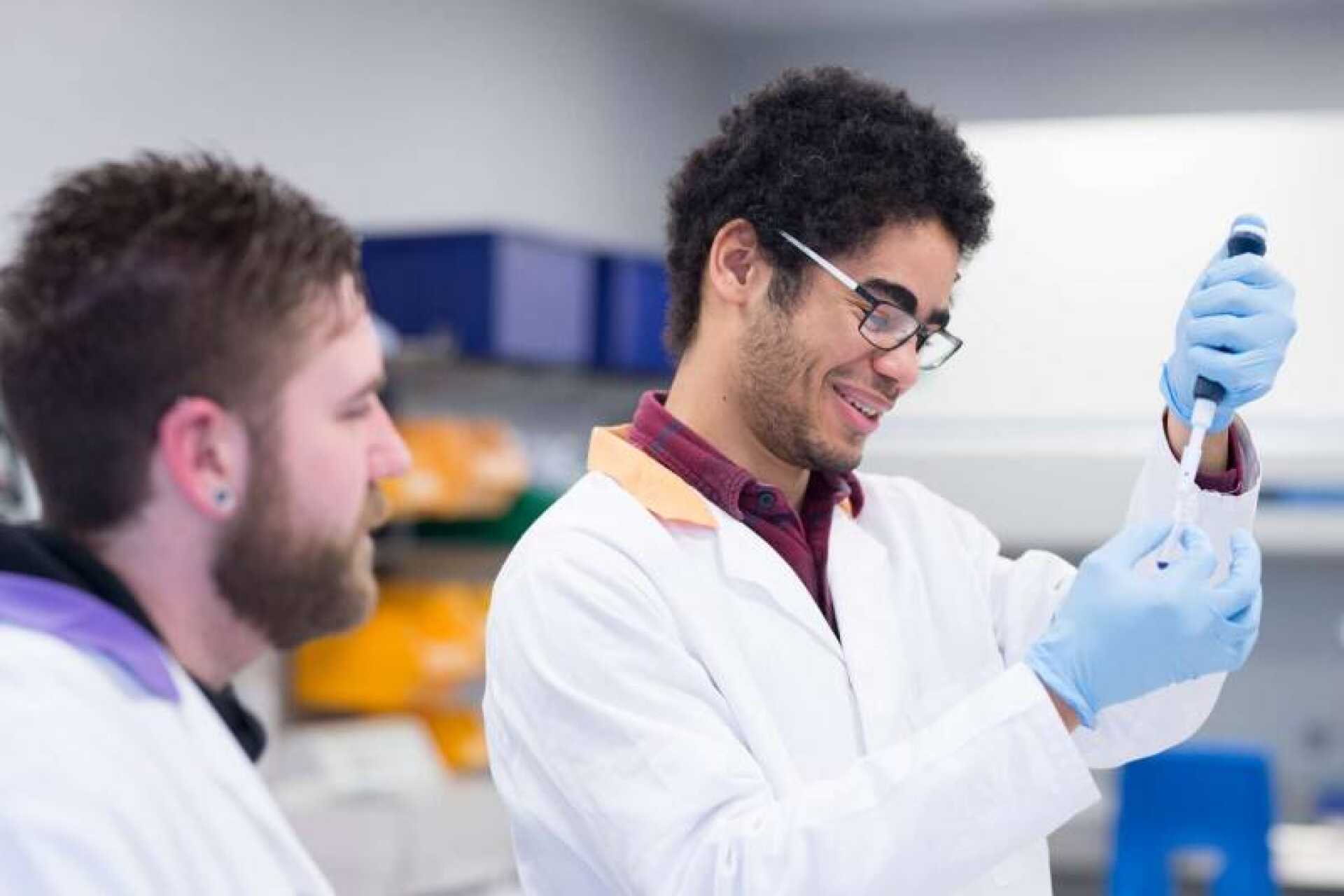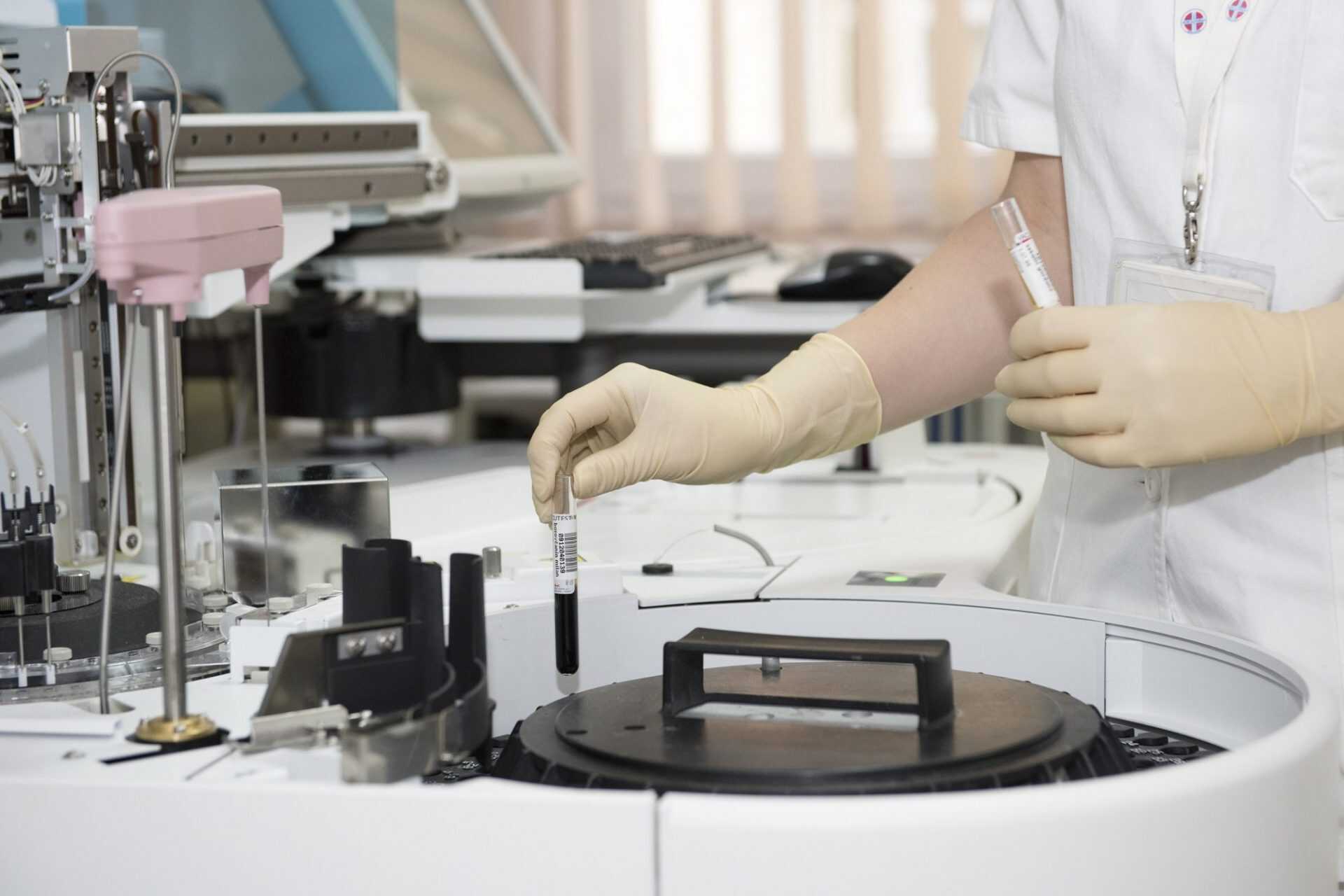Applied Chemical Sciences
This three-year degree programme underpins the Technician Scientist higher apprenticeship standard.

This three-year degree programme underpins the Technician Scientist higher apprenticeship standard.
Developed with, and for employers, the programme incorporates interactive e-learning, on- and off-site academic support and short residential blocks. It can support individuals wanting to progress their career within SME and global organisations, covering relevant roles in the life science supply chain from research through development and into manufacturing.
The higher apprenticeship is delivered as a blended course. Most material will be in the form of directed self-learning via the university’s e-learning platform, Moodle, and face to face teaching held over the summer.
The University of Kent is at the forefront of providing science-based higher and degree apprenticeships. It is one of the few universities to provide a chemical science-aligned degree programme for the Technician Scientist higher apprenticeship standard. Our expertise in e-learning delivery, together with flexible entry points, means that the programme can be delivered with the least disruption to the business.
We offer an optional top-up study of 1.5 years in BSc (Hons) in Applied Chemical Sciences Higher Apprenticeship that underpins the Laboratory Scientist higher apprenticeship standard.
The University of Kent has delivered higher apprenticeships since 2011, working with industry-leading employers including GlaxoSmithKline, Pfizer, AstraZeneca, Novartis and Unilever.
Kent launched the Centre for Higher and Degree Apprenticeships in 2016 to build on this experience. The centre works in partnership with regional and national employers to develop apprenticeships tailored to their needs. The centre also has an important role to play within the University, supporting academic schools on all aspects of delivering apprenticeship training.
We help to devise a tailored programme of study that complements activity in your workplace, underpinned by our leading academic programmes.

This apprenticeship standard is recognised by the Science Council at registered Scientist (RSci) level.
The University has delivered higher apprenticeships since 2011, working with industry-leading employers including GlaxoSmithKline, Pfizer and AstraZeneca.

We also offer an optional top-up study of 1.5 years in BSc (Hons) in Applied Chemical Sciences Higher Apprenticeship.
Our typical offer levels are listed below and include indicative contextual offers. If you hold alternative qualifications just get in touch and we'll be glad to discuss these with you.
80 points including DD at GCE A level for Chemistry and another science subject.
Vocational Science based A level (Double award 12 units) and a pass in an approved English Language qualification
BTEC National Certificate in Science (merit level) and a pass in an approved English language qualification
BTEC National Diploma in Science (merit level) and a pass in an approved English language qualification.
26/30 points (12/14 at Higher). The course studied must contain a significant content of Science at the required level. Please check with the University beforehand that you have studied sufficient Science at the required level.
Five GCSE passes, including English Language or Use of English and mathematics at grade C or above (9 - 4), and at least two subjects at A level.
N/A
The University will consider applicants holding T level qualifications in subjects closely aligned to the course.
A satisfactory pass in an approved Science Based Foundation or Access programme. Please check with the University beforehand that we will accept the Access/Foundation syllabus you took.
Apprenticeships are also offered to up-skill the existing workforce, therefore if you are an applicant without the traditional qualifications listed below; and have prior learning and skills developed from your workplace, please contact the university and we will consider applicants on a case by case basis.
The 3 year part-time study awards 240 credits upon successful completion of the course.
You take the following compulsory modules:
You take the following compulsory modules:
You choose 1 of 2 from the following options:
You take the following compulsory modules:
Plus 45 credit from 3 the following modules:
Acquisition of outcomes will be achieved primarily through extensive use of e-learning materials via the University's e-learning platform Moodle. Theoretical content in the form of storyboards; video; links to related reading; and activities with feedback provided. The emphasis of the programme is to link the knowledge and learning to work-based learning and employment wherever possible.
This includes "hands-on" practical skills but also broader skills including: numeracy; IT and communication. Practical experience in the work place will be essential to develop and enhance these skills. A summer school in both the first and second year of the programme will be used to provide more "hands-on" techniques/skills that are not available at work or locally.
A number of methods will be used for both formative and summative assessment of these more practical skills including: practical tests or assessment at the university or in the work place; reports or other documents such as Standard Operating Procedures (SOP's); oral plus written presentations; project plans; and the Company Based Project Report.
Formative assessment will include: progress tests; reports; portfolio entries; short essays; analysis of case studies; and presentations. Progress and attainment of learning outcomes will be determined by a variety of summative assessments including: unseen written examinations (three times a year in the workplace), some as Multiple Choice Questions (MCQ’s); reports including the Company Based Project; essays; portfolio entries; case studies; and presentations.
For a student studying full time, each academic year of the programme will comprise 1200 learning hours which include both direct contact hours and private study hours. The precise breakdown of hours will be subject dependent and will vary according to modules.
Methods of assessment will vary according to subject specialism and individual modules.
Please refer to the individual module details under Course Structure.
The programme aims to:
You gain a knowledge and understanding of:
You gain the following intellectual skills:
You gain the following subject-specific skills
Laboratory Skills Summer School
These are technical skills identified by employers as core to the competence of individuals working in the chemical science sector. Recognising the existence of company in-house training schemes learners will be able to evidence these technical skills through accreditation of in-house training and achievement through day-to-day activities in the workplace. In this way learners will be able to select particular technical skills they wish to enhance and/or develop to meet employer need.
You gain the following transferrable skills:
A technician scientist carries out established laboratory based investigations and basic scientific experimentation using bench and instrumentation techniques. They use a range of routine skills and some advanced and specialised skills following well established principles associated with their organisation’s science and technology, which may typically be within chemical, pharmaceutical, biotechnology, formulated products or analytical services.
They carry out routine lines of enquiry, development or investigation taking responsibility for the quality of the work they undertake. They work safely and ethically often under highly regulated conditions because of the need to control quality and safety of scientific products. They critically evaluate appropriateness of commonly used approaches to solving routine problems, using a range of approaches to formulate evidence based responses to defined and routine problems and issues within their area of work. They also contribute to solutions to problems within the wider scientific team, using appropriate project management procedures.They perform record keeping and checks and use data capture systems relevant to the technical and scientific procedures that they use. They analyse relevant scientific information, interpret and evaluate data, prepare results and provide progress updates of their work. They manage resources within a clearly defined area.
They use their awareness of any research interests and the technical context and processes of the laboratory alongside senior team members to contribute to the proposal of new scientific ideas. They have an up to date knowledge of technical, scientific and regulatory developments related to the conduct of the laboratory. They communicate information, arguments and analysis in a variety of forms to specialist and non-specialist audiences
They work as part of a wider scientific team, which may include laboratory scientists and laboratory technicians, in settings where there is certainty and with limited ambiguity taking personal responsibility for decision making in routine predictable contexts.
Typical job titles include; Analytical Support Chemist, Technical Support Scientist, Microbiology Support Scientist, Process Development Technologist, Laboratory Assistant, Senior Laboratory Technician, Assistant Scientist, Technical Specialist (Scientist), Quality Control Laboratory Assistant, Laboratory Co-ordinator, Technical Laboratory Assistant, Laboratory Analyst, Laboratory Research Assistant
This apprenticeship standard is recognised by the Science Council at registered Scientist (RSci) level.
For details of when and how to pay fees and charges, please see our Student Finance Guide.
Please refer to the Apprenticeship funding: rules and guidance for employers for information on what costs can and cannot be included within the apprenticeship cost.
Please note that the Basic and Advanced Laboratory Skills (summer schools) accommodation, food and travel expenditure will come at an additional cost.
Find out more about accommodation and living costs, plus general additional costs that you may pay when studying at Kent.
The maximum amount of funding the government will contribute towards this apprenticeship is £27,000, including the end point assessment. As each apprenticeship is tailored to the need to the employer, please contact the Centre for Higher & Degree Apprenticeship for full costings.
The university is working with levy and non-levy employers to provide apprenticeships and welcome inquiries from interested organisations.
We welcome applications from students all around the world with a wide range of international qualifications.

Student Life

Powered by progress
Kent has climbed 12 places to reach the top 40 in The Times Good University Guide 2025.
Kent Sport
Kent has risen 11 places in THE’s REF 2021 ranking, confirming us as a leading research university.

An unmissable part of your student experience.